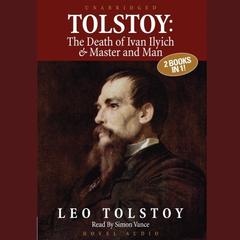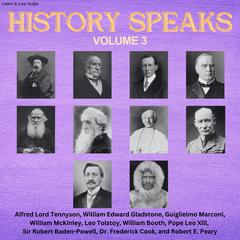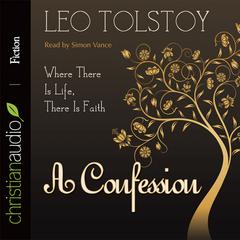 Play Audiobook Sample
Play Audiobook Sample
What Is Art? Audiobook
 Play Audiobook Sample
Play Audiobook Sample
Quick Stats About this Audiobook
Total Audiobook Chapters:
Longest Chapter Length:
Shortest Chapter Length:
Average Chapter Length:
Audiobooks by this Author:
Publisher Description
What Is Art? is the result of fifteen years’ reflection on the nature and purpose of art.
Tolstoy claims that all good art is related to the authentic life of the broader community and that the aesthetic value of a work of art is not independent of its moral content. The book is noteworthy not only for its famous iconoclasm and compelling attacks on the aestheticist notion of “art for art’s sake” but even more for its wit, its lucid and beautiful prose, and its sincere expression of the deepest social conscience.
Tolstoy is an author critics typically rank alongside Shakespeare and Homer. A sustained consideration of the cultural import of art by someone who was himself an artist of the highest stature will always remain relevant and fascinating to anyone interested in the place of art and literature in society.
Download and start listening now!
"Tolstoy raised some very interesting points and - as Kandinsky, Rothko, and others afterwards - he assaulted this self-indulgent notion of artists who created "art for art's sake" and devoid of any type of meaning to the individual (ie. Wagner, Baudeaire, Beethoven, etc. ...) I believe it to be one of the most important philosophical works stemming from the late 19th-century and have used this work in tandem with Kivy's "A Philosophy of Music" when teaching aesthetics and philosophy."
— Brian (4 out of 5 stars)
Quotes
-
“Eccentric and lucid, cranky and brilliant, funny and fierce.”
— New Criterion -
“The effectiveness of What Is Art? lies not so much in its positive assertions as in its rejection of much that was taken for granted in the aesthetic theories of the time.”
— John Bayley, literary critic and former Warton Professor of English at Oxford -
“What Is Art? itself is a work of science, though many passages, and even some whole chapters, appeal to us as works of art and we feel the contagion of the author’s hope, his anxiety to serve the cause of truth and love, his indignation (sometimes rather sharply expressed) with whatever blocks the path of advance, and his contempt for much that the ‘cultured crowd,’ in our erudite, perverted society, have persuaded themselves, and would fain persuade others, is the highest art.”
— Aylmer Maude, translator -
“Infuriating, irresistible, aesthetically unaesthetic.”
— E. Lampert, New Essay on Tolstoy
What Is Art? Listener Reviews
-
" Great look at the history of art. "
— Michael, 1/12/2014 -
" A communist, yet still bourgeois view of artists as egocentric and parasitic. He raises good questions, such as how to recognize art, but seems to think that the inability to answer them is the fault of art and artists. I did like his definition of art as spiritual union. But what does that say about people who love reality TV? "
— Ann, 11/21/2013 -
" Tolstoy, thank you for writing this-- I now know most of what we call Art we should call Not Art. I know John Gardner thanks you as well, had you not written this he would have never pulled off _On Moral Fiction_. What is next for Team Tolstoy? Let's do brunch. "
— Jim, 9/23/2013 -
" Read this way back in the day as an undergraduate for a seminar on Contemporary Art Issues. It indeed had an impact on forming my perception of art as an infection of feelings from artist to audience. 20 years later, it's probably worth a re-read... "
— Mark, 6/2/2013 -
" so much about this pissed me off. "
— Beth, 3/19/2013 -
" Brilliant. Love reading Tolstoy's thought process. "
— Morgan, 6/3/2012 -
" This book very thoroughly said some stuff that might not have needed so much thoroughness. Agreed with some of it, didn't agree with some of it. It made me rebelliously make it's review vague and brief. "
— Shayna, 3/23/2012 -
" Apparently art isn't art unless it's glorifying Christianity. His definition of art could have only been rendered more narrow if he claimed that portraits of Jesus himself are exclusively what constitutes "Art". "
— Joshua, 8/10/2011 -
" and well book by tolstoy "
— Veysel, 7/18/2011 -
" i just couldn't agree with Tolstoy's personal use of christianity as a rubric for evaluating art. and he also shoots himself in foot by saying that good art lacks superfluous detail! whoops! "
— Laurel, 7/4/2011 -
" amazing the spin he put on art and beauty. "
— Nile, 5/31/2011 -
" If anyone wants to know where Gandhi and MLK got their non-violence from, or where I originally got my Christian anarchy views from, check this book out. It's a classic, really, so it's unfortunate that not many people have heard of it. "
— J-luce, 5/12/2011 -
" Just skip the first half. The latter half makes up for it. "
— Joseph, 1/19/2011 -
" Little has changed from 19th Century Russia to 21 Century with regard to the hypocrisy & sophistry of Christians who profess faith in Christ without so much as making the attempt of the lifestyle and teachings he advocated. This is still relevant today. "
— Jonathan, 12/30/2010 -
" For anyone serious about studying and adopting the way of non-violence, this book must be read. Tolstoy's greatest non-fiction work. This book inspired Gandhi as he was formulating his non-violent practices. "
— Matt, 11/3/2010 -
" He sticks to his guns, but his guns are pretty stupid. "
— Stephen, 10/11/2010 -
" Had to read it for class. Nobody would ever read this for pleasure. Five stars anyway! Why? It's Tolstoy. "
— Ted, 2/15/2010 -
" good stuff fo the soul "
— Mugo, 12/5/2009 -
" This is incredible...from the man who inspired ghandi and penned his feelings bout antiestablishment practices and non-violent response. enjoying it immensely, esp. after reading Abbie Hoffman... "
— Leah, 11/3/2009
About Leo Tolstoy
Leo Tolstoy (1828–1910) was born about two hundred miles from Moscow. His mother died when he was two, his father when he was nine. His parents were of noble birth, and Tolstoy remained acutely aware of his aristocratic roots, even when he later embraced doctrines of equality and the brotherhood of man. After serving in the army in the Caucasus and Crimea, where he wrote his first stories, he traveled and studied educational theories. In 1862 he married Sophia Behrs and for the next fifteen years lived a tranquil, productive life, finishing War and Peace in 1869 and Anna Karenina in 1877. In 1879 he underwent a spiritual crisis; he sought to propagate his beliefs on faith, morality, and nonviolence, writing mostly parables, tracts, and morality plays. Tolstoy died of pneumonia in 1910 at the age of eighty-two.
About Geoffrey Blaisdell
Geoffrey Blaisdell is a professional actor who has appeared on and off Broadway, in Broadway national tours, and in regional theater.























